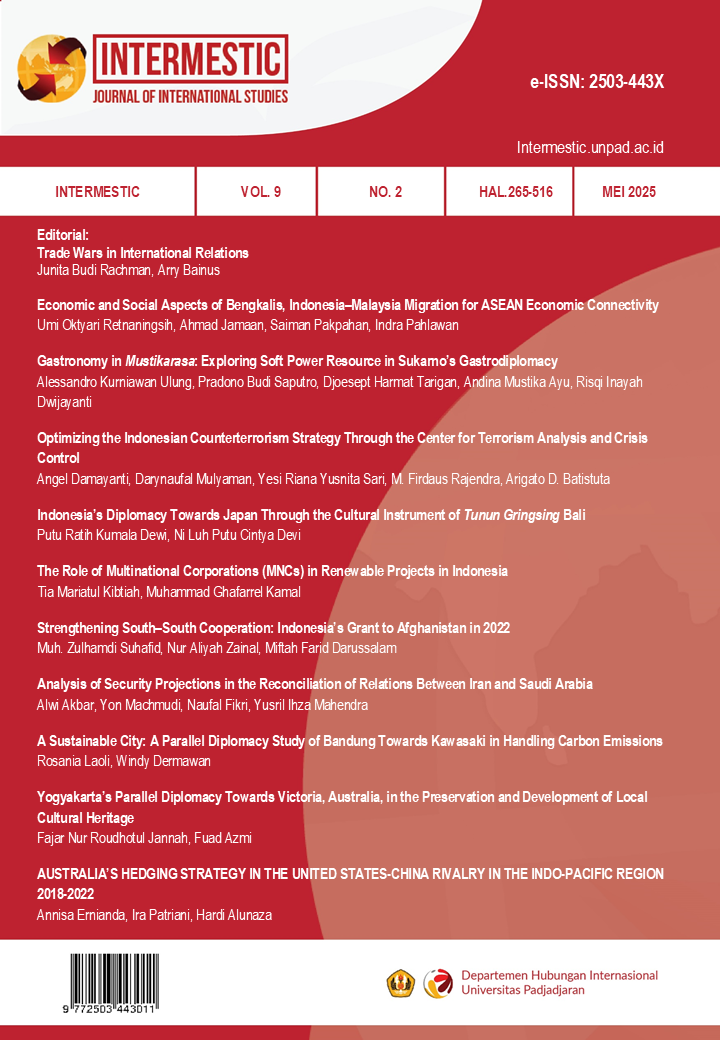Gastronomy in Mustikarasa: Exploring Soft-Power Resource in Sukarno’s Gastrodiplomacy
Isi Artikel Utama
Abstrak
National cookbook Mustikarasa composed by president Sukarno shows the importance of Indonesian gastronomy in the practice of his gastrodiplomacy. This study aims to examine gastronomic assets documented in Mustikarasa, exploring Sukarno’s gastrodiplomacy maneuver that led to the making of the cookbook. To that end, this study uses Joseph Nye’s soft power theory and employs a qualitative method, which combines a systematic literature review with expert interviews. This method allows this study to find that Sukarno composed Mustikarasa because he perceived Indonesian gastronomy as soft-power resource. He deemed gastronomy to become soft-power resource because it contains cultural, historical, and philosophical values, which he sought to use to build the image and position of the nation on the international stage. For the president, those values were important because they were part of Indonesian identity that he liked to introduced and promote globally through gastrodiplomacy post-independence. This study contributes to enriching existing literature on Mustikarasa as this cookbook witnessed Indonesia’s first gastrodiplomacy maneuver in the implementation of Indonesian foreign policy
Rincian Artikel
Terbitan
Bagian
Para penulis yang mengirimkan naskah melakukannya dengan pengertian bahwa jika diterima untuk publikasi, hak cipta artikel akan diberikan kepada Intermestik: Jurnal Studi Internasional, Departemen Hubungan Internasional, Universitas Padjadjaran sebagai penerbit jurnal.

